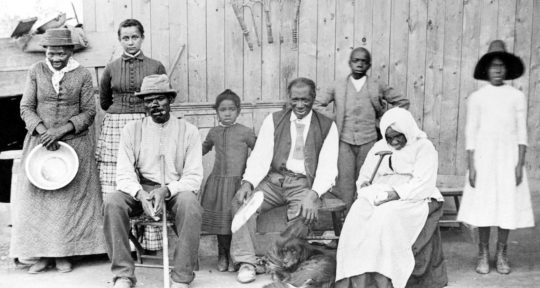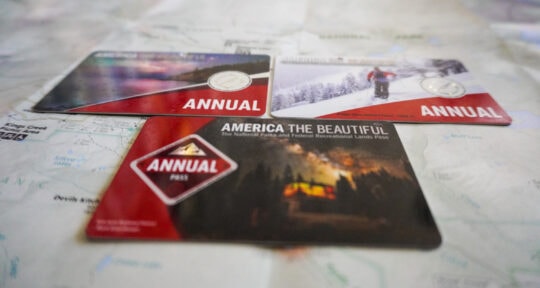Randa Jarrar’s new memoir Love is an Ex-Country is about the cross-country road trip she took in 2016, but it’s really about her queer, fat, light-skinned Arab American body. It’s also about the visibility and invisibility of different aspects of Jarrar’s identity as she interacts with people across the U.S.
The day I speak to Jarrar, I’ve recently moved from Chicago to a small city in Indiana; visibility has been on my mind a lot lately. I’ve left a city where it generally felt comfortable to be out as queer and nonbinary, and signed a new lease in a town where I’d prefer to be invisible.
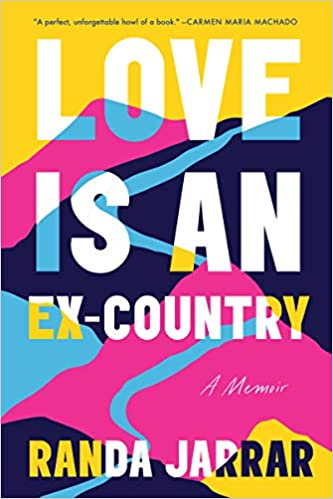
Speaking to Jarrar at this juncture feels incredibly appropriate. I’ve moved, in part, to be better able to save up for a camper. Jarrar also understands the pull of the road: “I [love] the feeling of forward motion, that driving [feels] like home,” she says.
Trips on top of trips
It was the summer of 2016. Jarrar’s adult son had recently moved out on his own and she was taking a sabbatical to write. “For the first time in my life, I didn’t have to take care of anyone, and I decided to go across the country on my own,” she says. “I wanted to create a subversive road trip.”
She started her trip on the precipice of the 2016 election and, she writes, “I wanted to commune with the land I lived on, to see America during that deeply troubled and troubling election year.”
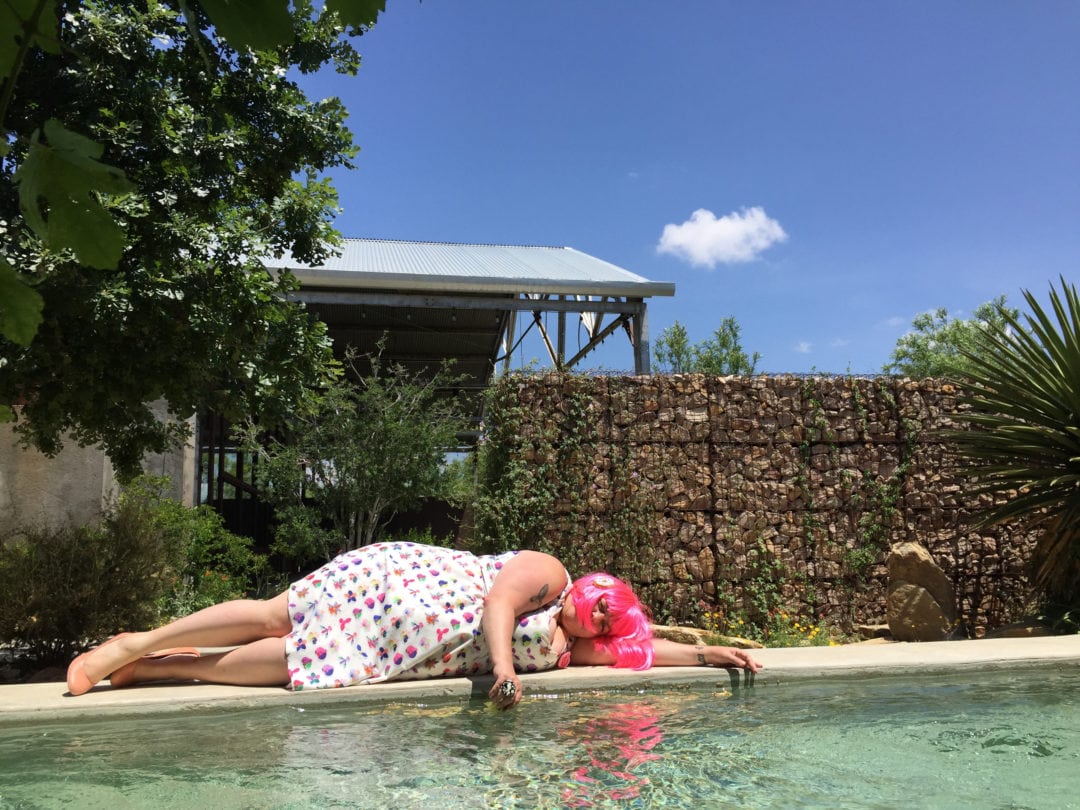
After a pre-trip flight to Washington State to visit her “favorite lover […] at the time”—a detour that sets the tone for the trip and the memoir—Jarrar drives from Fresno, California, to Flagstaff, Arizona. Her trip includes stops in New Mexico, Texas, Oklahoma, Missouri, Illinois, Minnesota, Michigan, and Connecticut.
While the book follows the road trip, starting in California and ending in Connecticut, Jarrar also weaves in stories from her childhood. Growing up in Egypt, Kuwait, and the U.S., Jarrar writes about the dozens of other trips throughout her life that have shaped her.
“I wanted to put trips on top of trips on top of trips,” she says. “If you think about the map of America with the line of my travel going through it as a zipper, then as it’s unzipping, I’m able to put in so much more than my travels just in America. Because there are all these other ways that memory works.”
Moments of joy pop up throughout her road trip like wildflowers and offer small breaks between heavier stories of the racism and fatphobia Jarrar faces on the road, as well as the emotional and physical abuse she endured from her father and two husbands.
This is not a light book, but it is a liberating one. As one trip bleeds into another, I learn how Jarrar has found self-confidence in her body, in her identity as a Palestinian, Egyptian American, daughter, and mother, and given herself the permission to pursue joy and pleasure after years in abusive and oppressive relationships.
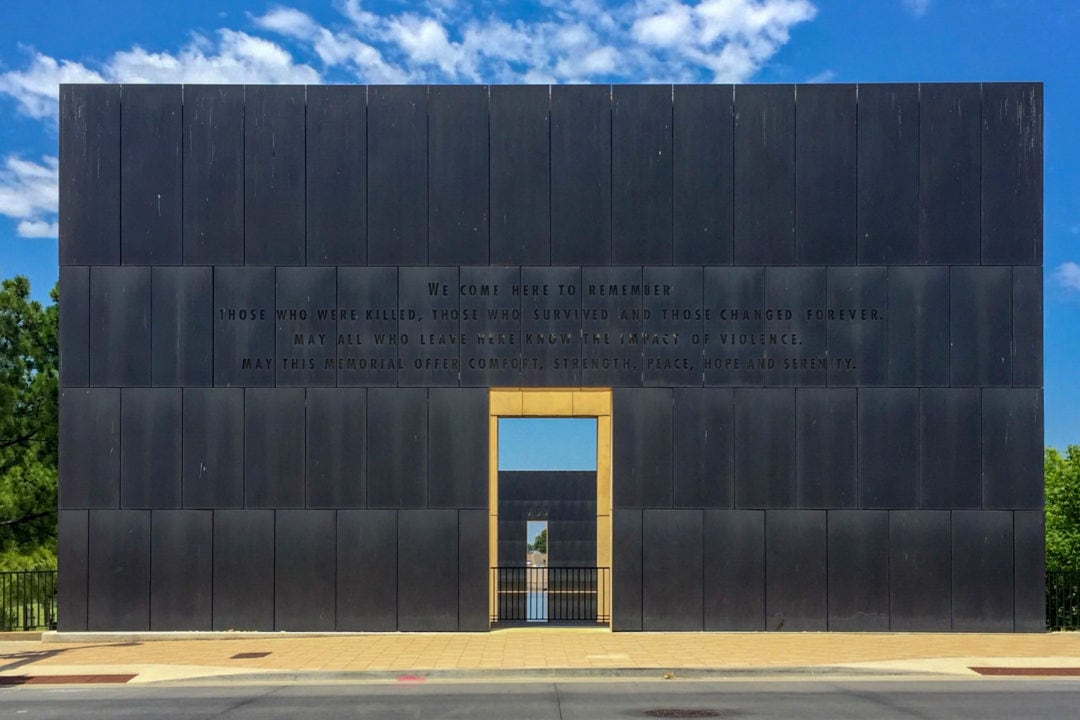
Thanks to Jarrar sharing about her travels, I learn about how different places treat fat people and brown people—like the cop who pulls her over in Missouri or the woman denouncing Arab immigrants in the restroom of a New Mexico gas station. “Most of what I was really thinking about was the ways that my body can sometimes be invisible too,” Jarrar says.
Privilege in exile
Jarrar explains how she finds community while she travels, planning her trip around Arab writing conferences and places where she has existing friends. When I ask her if travel is sometimes a necessity for marginalized folks seeking to find others like them, she agrees: “Because of economic status, different levels of privilege within exile, and all these different things, we tend to be scattered around the world,” she says. “And so, yeah, we do have to figure out ways to visit each other. And I think that it was important for me to always find folks that I could connect with while I was on the road.”
Her story is not Steinbeck’s Travels with Charley: In Search of America or Kerouac’s On the Road, and that’s the point. “I wanted to have it be the kind of road trip that will not [just] entertain white people,” Jarrar says. But for anyone who is large-bodied or a person of color, or a woman, femme, or queer who may feel unsafe on the road and yet is compelled to keep traveling, there’s great comfort in reading about the experiences of someone who feels the same way—and who, despite the odds, keeps going, finding joy, community, and new sources of strength along the way.
Read the book
Love is an Ex-Country by Randa Jarrar was published on Catapult in February, 2021.



